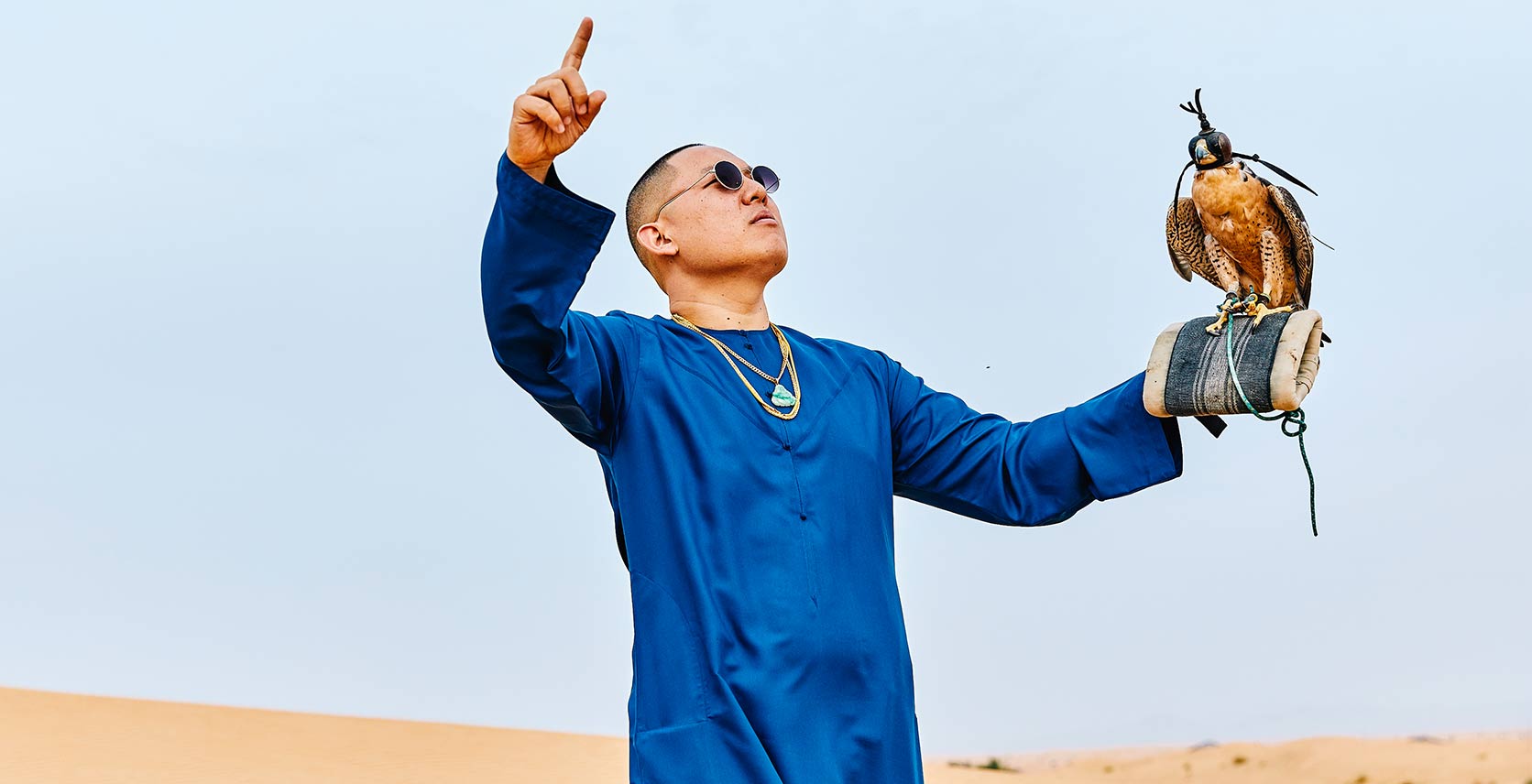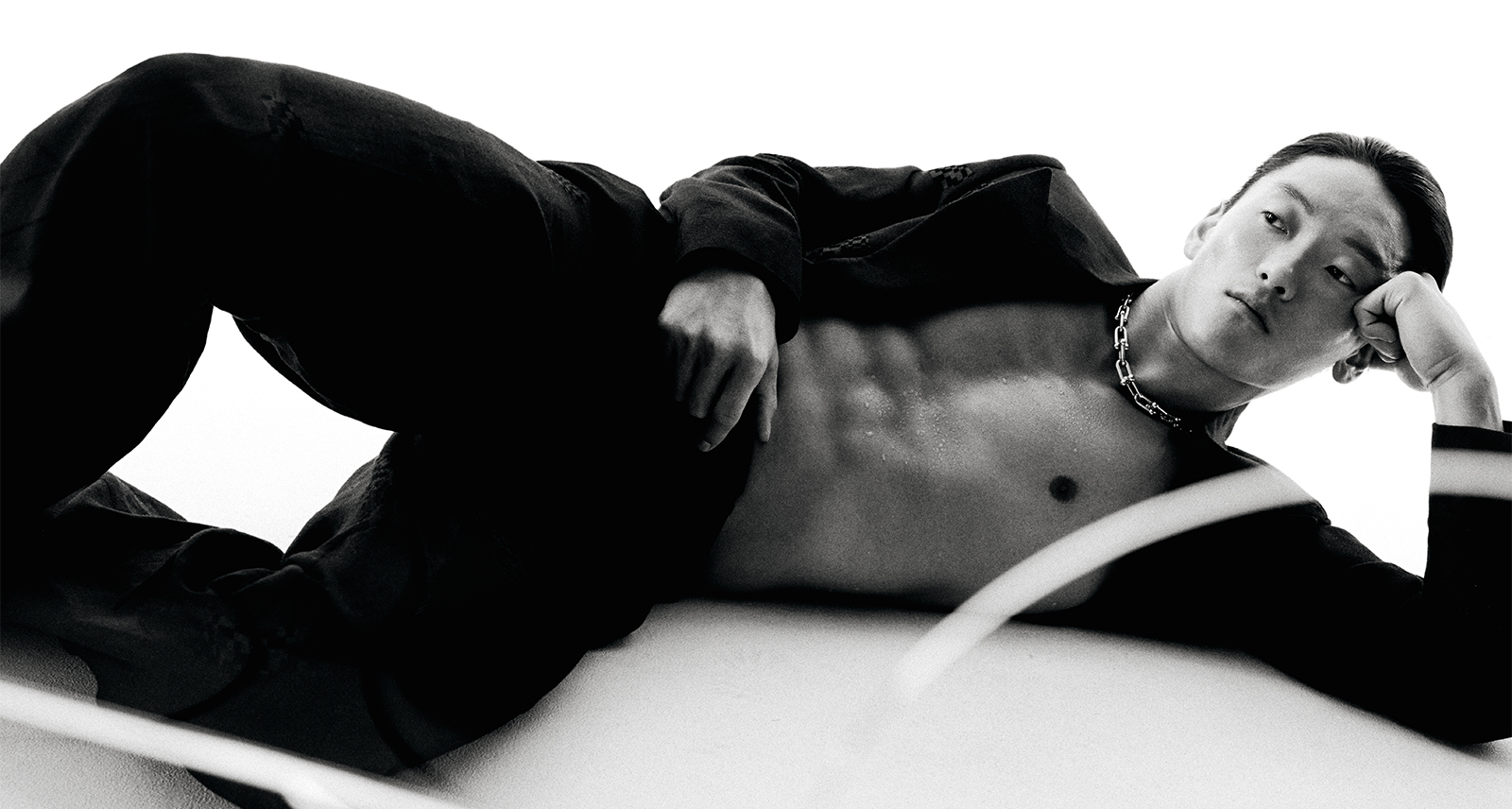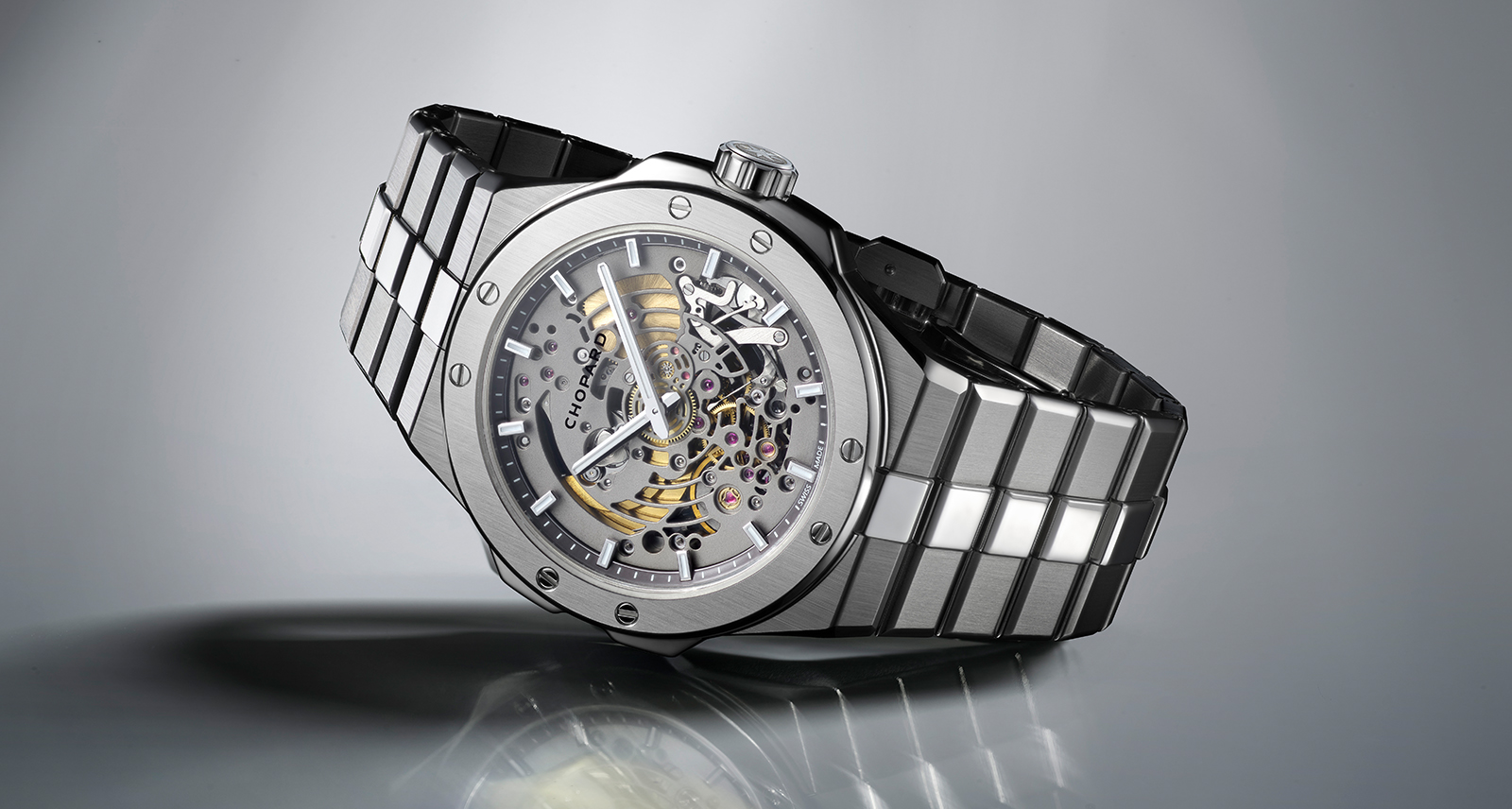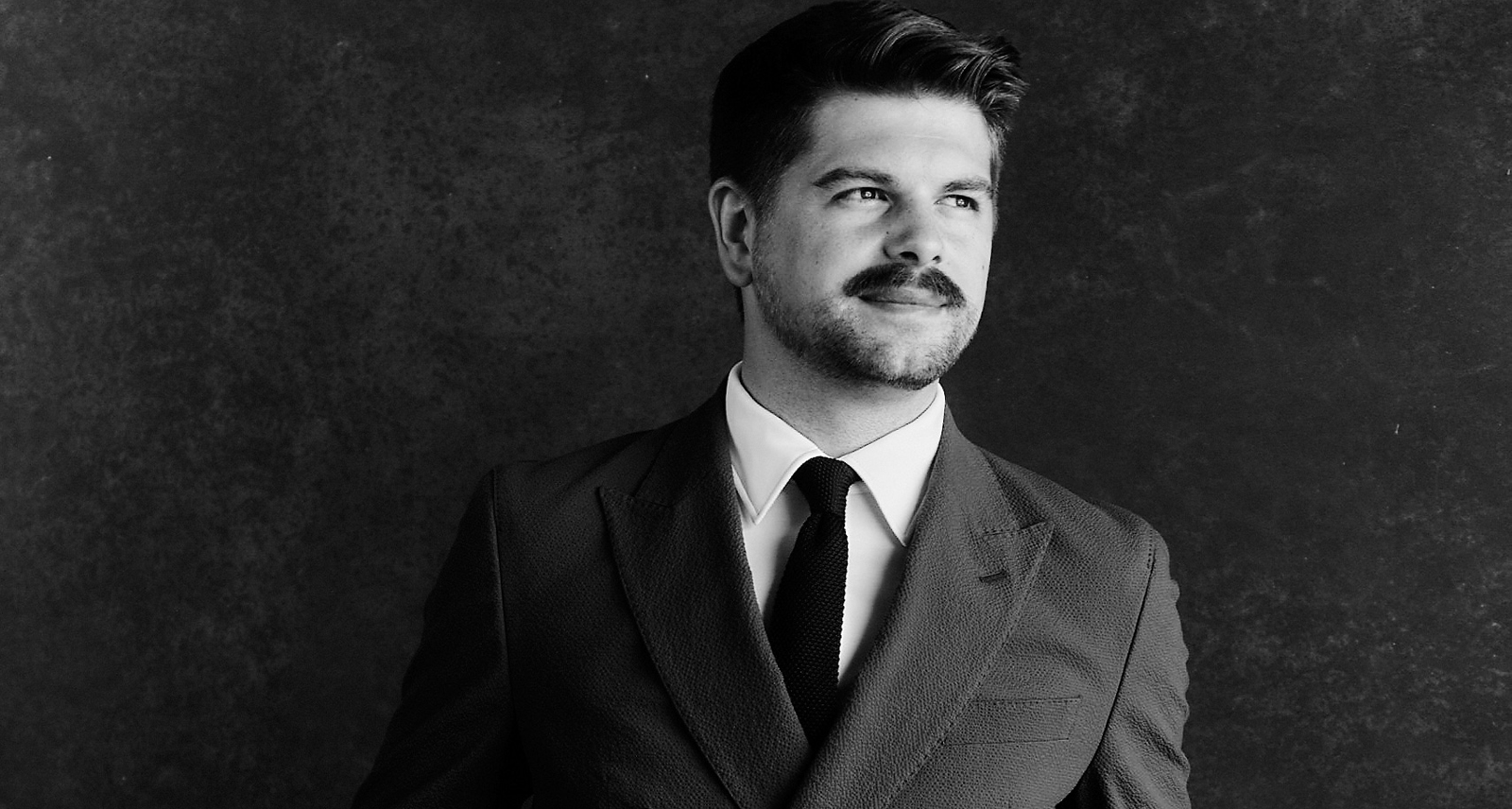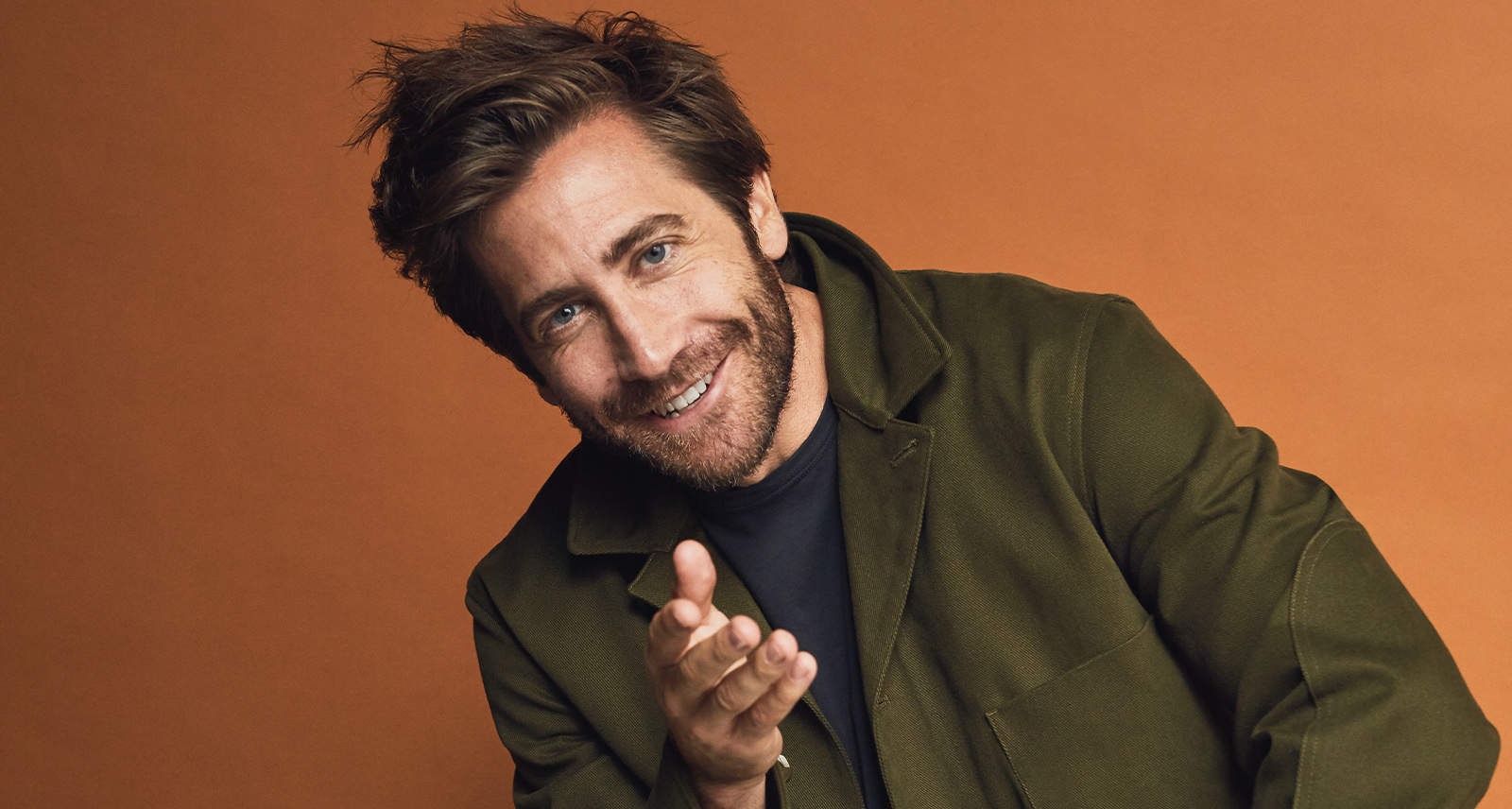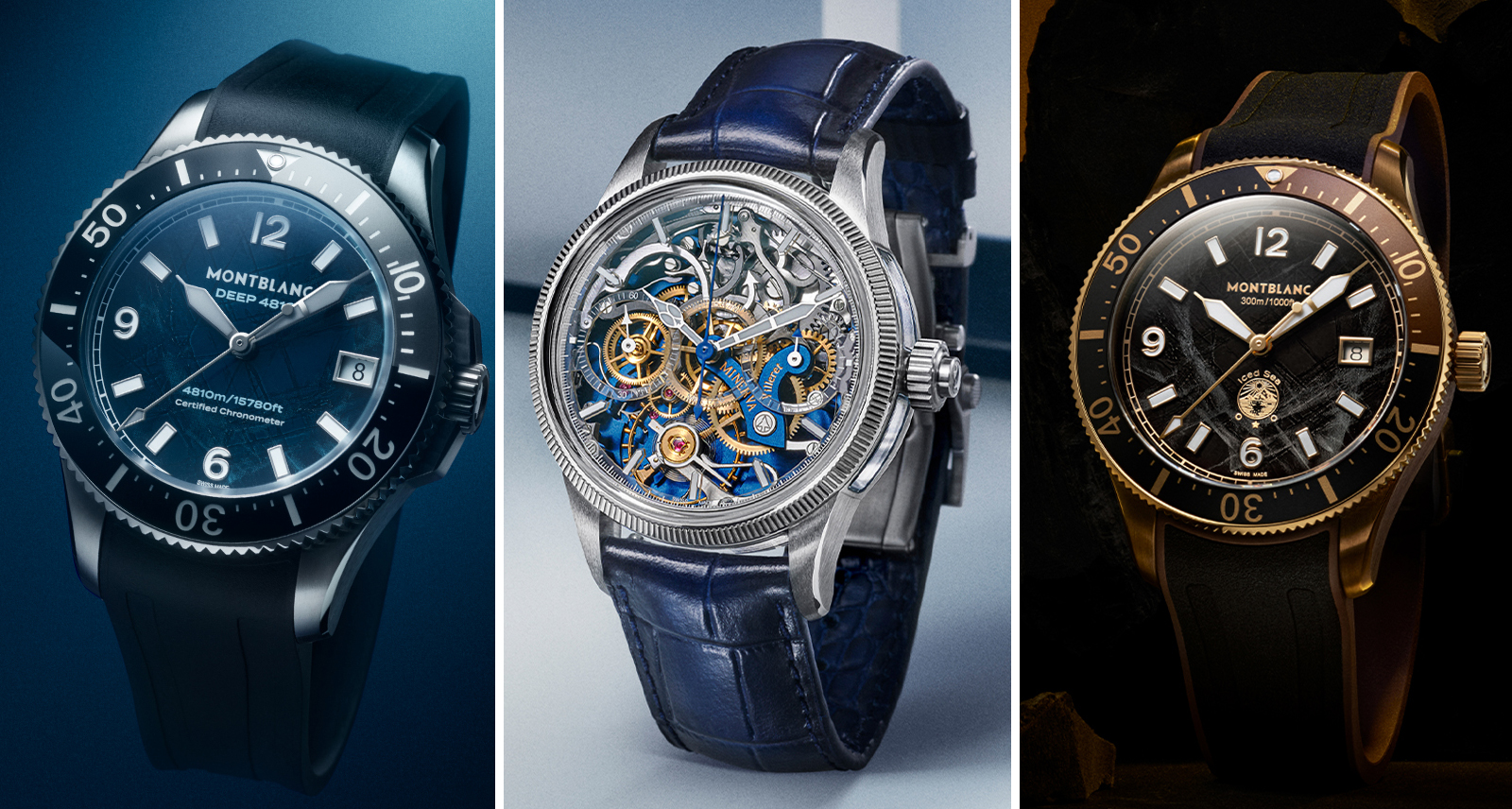Eddie Huang Dishes on His Love for Toronto’s Food Scene and Why the City Should Stop Trying to Be New York
Eddie Huang has traveled the world. He’s got restaurants in New York and LA. His travelogue food show for VICE – Huang’s World – has taken him to Dubai, Peru, Istanbul. Toyko. But in its second season, the chef-turned-bestselling-author-turned-TV-host decided to come to Toronto, of all places.
Not to dine at our finest establishments, or name-check the newest hotspots. Or even to chase down the city’s latest Instagrammable food trend (ahem, we’re looking at you, charcoal soft-serve). When Huang goes to Harbour Sixty Steakhouse, it isn’t to wax poetic about their pricey porterhouse with the head chef, it’s to talk to their overwhelmingly Sri Lankan kitchen staff.
It’s all part of an episode centered around Toronto’s surprisingly diverse food scene, spurred on by Canada’s commitment to multiculturalism (as opposed to America’s giant melting pot.) And if that all sounds like a more satisfying watch than your usual empty calorie food porn and cupcake competition shows, well, you’re not wrong.
With Huang’s World airing Wednesday nights at 10 pm on VICELAND, SHARP spoke to Huang about what inspired the trip to the 6ix, how his show is basically the anti-Fox News, and why Toronto should stop trying to be more like New York and just do its own thing.
A few weeks ago, I happened to catch an episode of Diners, Drive-Ins and Dives where they came to Toronto for a segment, and man, that view of Toronto versus the one that you presented…
[Laughs.]
It’s so, just, fundamentally different, it’s hard to describe. It’s not just, “Hey, they’ve got this thing called poutine up here! Those crazy Canadians!”
Yes! I’m really glad you mentioned that. I had seen shows like Diners, Drive-Ins and Dives… There’s so many food shows. But with Huang’s World, I really think food is more powerful than a lot of these food shows – or even chefs in restaurants – give it credit for. I want to not just drop you off at the restaurant and be like, “Hey, eat this food.” This food will draw the viewer in, but then, let me show you the neighbourhood. Let me show you some of the OGs. Let me show you some of the young kids doing creative work in the neighbourhood. I think a lot of food shows bring you to the beginning of a hike. They show the starting point and that’s it. I actually lead you through the neighbourhood, through the culture.
That’s one of the things I like about the show. It’s less about why a certain place is good, and more about what these places mean to the people who go there and the people who love them. That’s a really interesting distinction.
If you just go to a restaurant and eat, that’s just like a one-night stand. A relationship requires more time and effort. I don’t want a one-night stand in these cities and restaurants, I want to have a relationship with them. For instance, Jamaica – I’ve gone back numerous times since I shot there. I love Jamaica. I’m going to go back to Toronto. I really love Toronto. This season, we went to Dubai. I’m already planning to go back to Dubai for a film festival later this year. You meet people, you connect with the community, and it becomes a part of you forever. And hopefully, you become a part of that community.
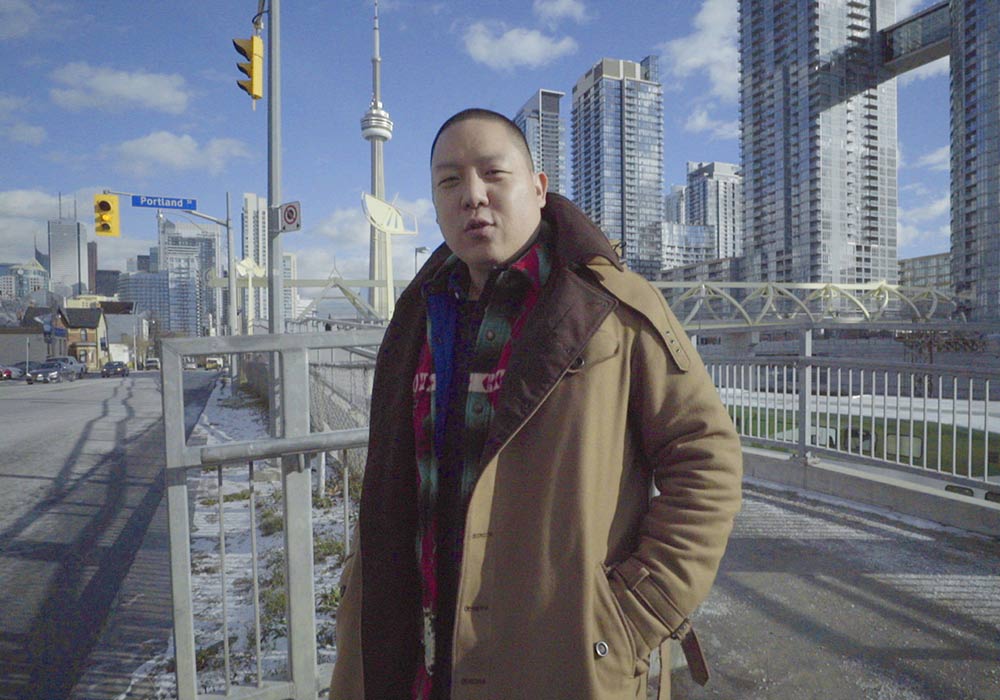
You kind of explicitly call this out at the beginning of the episode, but you’ve been to some pretty exotic locations for this show. Toronto doesn’t exactly check that same box. What made you want to come film an episode here?
I was speaking at Humber College, and I was sick and had to get a prescription, so I went to this Walmart in Mississauga, and next door to the Walmart was a food court. And of course I’m going to go to the food court and see what’s up. And this was just like a regular mall with some really funny businesses. One I remember was a store called Smokes and Pets. You could get like hookahs and smoking paraphernalia… and pets. [Laughs.] I’m like, alright, this is an interesting mall. This isn’t your run-of-the-mill mall.
And I go to the food court, I see Bangladeshi food, I see Jamaican food, I see Chinese food. And none of them were franchises. It wasn’t like Wok & Roll. They were all small businesses with their own quirky names and graphics, and I’m like, this is beautiful! It actually captured the spirit of what I think a lot of these chichi, branded food markets are trying to do in New York or LA. You have these people that are like, “Oh, I worked at this Michelin-starred restaurant and now I’ve got a stand in this market, and I’m a real entrepreneur, small business [owner]. How cool is this?” And it’s like, Yeah, but… It still feels very strategic. Your friend probably works in an ad agency and helped you design the logo. You were at a Michelin restaurant. Like, you feel like it’s part of the Matrix.
Right. It’s the Disney version.
A lot of those weekend food halls – especially the ones connected to, like, new condo developments or hotels – it doesn’t feel genuine. It feels like the Matrix selling you their brand of small business. And I’m like, I get it, this cook is probably broke. But also probably went to a liberal arts school like me, and probably has upwardly mobile family members. But in Mississauga, I’m walking around these food stalls and these people, they’re surviving, they’re struggling, but they’re giving you what they have. It’s very honest, and it’s very direct from their home to yours.
And I was like, this is cool! Because the only place you’d run into this in New York now is in Queens. Developers have taken over so much of the property in New York, and everything is branded. Everybody has a publicist. We never had a food publicist with Baohaus. I had a publicist for maybe three months, for me and my shows. VICE has their publicist, Random House. But I don’t have a publicist for Baohaus. We built that, me and my brother. So I really related to what was going on here. And I said, “I want to bring the show to Toronto, because I have a hunch that there’s a lot of other places like this.” On the show, we don’t go to the fancy restaurants and go see the big-name chefs. We went to Spiceland [in Scarborough]. We went to grocery stores. Because these are the places that sustain neighbourhoods and communities.
How do you plan an episode? How do you decide where you’re going to go, who you’re going to talk to?
I literally called my producer from the mall and was like, “Put Toronto on the board.” He was like, “…Toronto? Interesting.” And of course, a producer’s first inclination is like, Oh, we have a VICE Toronto office, so this’ll be easy to produce. I’m like, “Yeah, sure. Whatever you got to tell yourself. We’re going to Toronto.” Then they ask me, what are you interested in? I said, “Study this mall. I want more stories like this.” So they look at the mall, then they look at Spiceland. Then we called [Toronto chef and fellow VICELAND host] Matty Matheson, said, “Hey Matty, this is what we’re doing. We’re looking for humble immigrant small businesses. We want to explore multiculturalism in Toronto. And we want to understand why it is that Toronto has fostered the growth of so many of these small businesses. Why is it that these things are thriving?”
And what we came to find out from a lot of our research and talking to people in Toronto was that in Toronto there is not as much of this pressure to assimilate and be “Canadian.” Being Canadian can also mean being Syrian or being Sri Lankan. It can mean being like Matty, or being like Logo from Tibet. Canada doesn’t have that same attitude that America has where it’s like, if you come here, you better be American! Like, a lot of people have said to me, in America – still, all the time – if I complain about anything, “Well, you go the fuck back to China!” From the people I talk to in Canada, that doesn’t seem to be a sentiment. That’s not a card that people can play on each other. And I think it comes from the leadership of Pierre Trudeau and now Justin Trudeau.
So, I’m telling you, the episode just started from me and this food court, and having these questions. I noticed something: this food court is rare, you don’t see this in America. How did this happen in Canada? And we just reverse-engineered it. And once we started to figure out the answers, then we say, OK, now let’s organize the episode. Let’s talk about Pierre Trudeau and his laws. Who’s the best person to talk to about this? Well, maybe the guy from NPR. So he establishes: this is the government’s role in this, this is the legislative role, this is the law that drove the culture. In America, you see a lot of the inverse. The law is the last thing to catch up. Like the gay rights movement? That happened in the streets. That happened person to person. That was a cultural movement that then became memorialized in law. Many, many years after people had already come around to these ideas. And I thought it was interesting in Toronto to tell a story where the cultural movements and the attitudes followed the leadership of the government and the law that was enacted. And that is the type of government and leadership that I really admire.
And, of course, you have to get the Degrassi jokes in there somewhere too.
[Laughs.] I mean, I love Degrassi. And Degrassi is such a good example! We just tried to pick all the things that we have in common with Canada. We have teen dramas, we have sports, we have restaurants. But look at how differently it’s approached in Canada. If we had a Degrassi in America, there’d be The Hollywood Reporter, Variety, everyone going, “Oh my God! It’s such a multicultural, diverse show!” In Canada, that’s just a reflection of our society. It’s not a trend.
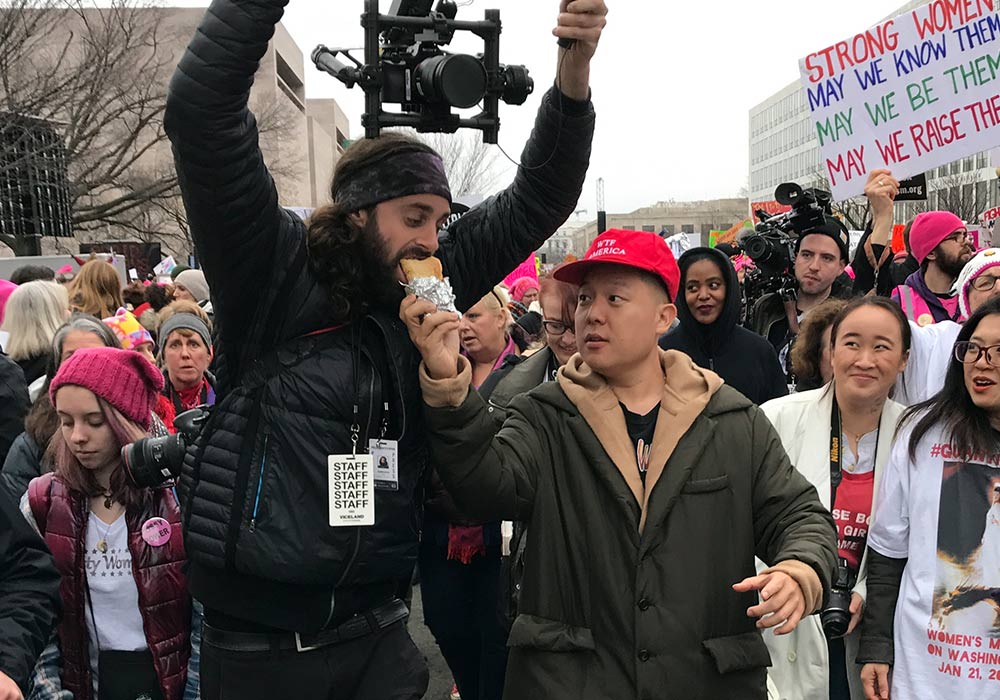
Right. That’s just the way it is.
It’s the way it should be.
Especially in America right now, there’s a huge divide. There’s nationalists and then there’s the liberals who really believe in diversity and multiculturalism. And when you just bring up the words, people turn off. So I was like, alright, instead of hitting you with the words and starting it off as a debate, let’s do things that we all love. We all like to eat food, and we all like to play sports. Why can’t we translate this energy and this understanding into other facets of our life? Why have we allowed society and the government to politicize things that don’t necessarily need to be politicized?
I think in a lot of ways Huang’s World is the reverse Fox News. You know, Fox News wants to raise your blood pressure, increase your heart rate and get you all riled up for their point of view. I want to reduce your blood pressure, lower your heart rate, get you calm, then like, in a Fight Club sense, be a Hindu cow, and listen to what we have to say. And when you’re calm and reasonable, you take it for what it is. You may like it, you may agree with it, you may dislike it. But at least we’re calm, reasonable individuals having a conversation here.
Why is it important for you to talk to people who are part of the larger culture of a city, like the co-creator of Degrassi, as opposed to just the people in the food industry or famous chefs?
Because I don’t think it takes a chef to understand or talk about food. I think that’s a really narrow view. There’s certain shows where they travel around, they’re always seeing chefs and talking to chefs. I love chefs. There are a lot of chefs that are able to transcend their role and title as chef to speak about food in a universal way, but it’s not always the best route to go. I also think it’s more inclusive when you have a show where everyone is able to have something to say about food.
I think food especially is one of those things – you have three meals a day, breakfast, lunch and dinner – everyone is practicing. Everybody is familiar with this. And I think it’s a bit of smoke and mirrors when daily blog sites, magazines, or chefs try to make it seem like this mystical thing. Like, dude, people have been cooking for upwards of 3,000 years. I think the word chef probably came around 200 years ago. So, this idea of a chef is relatively new. So I think that, me personally, I’m always searching for older wisdom. For something that has more staying power than, like, this hot chef of the moment.
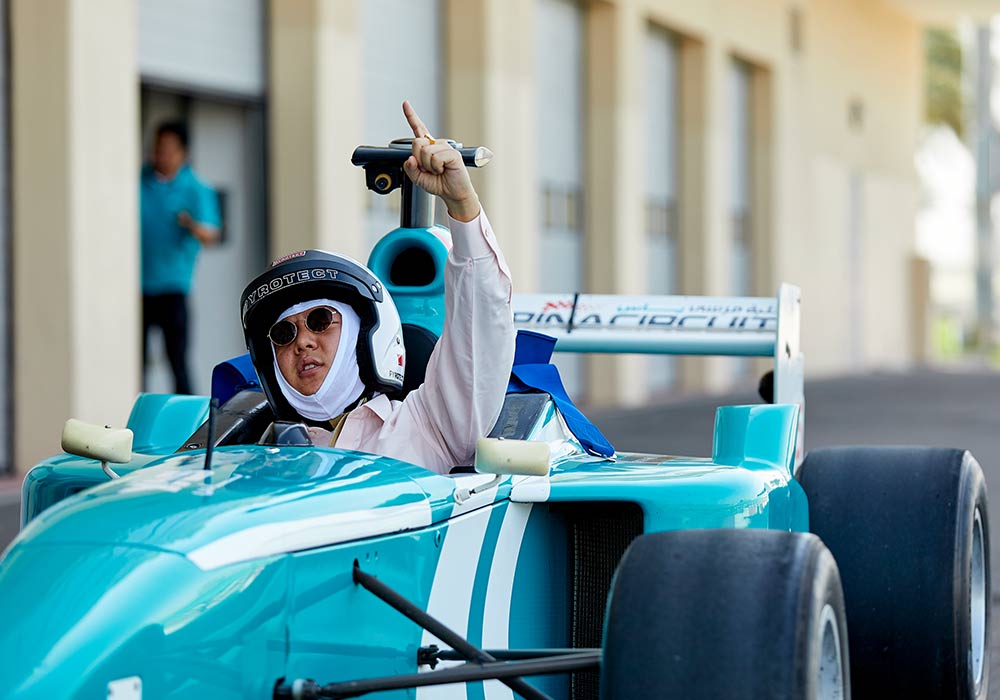
Last year, Anthony Bourdain talked to VICE Canada about how Toronto’s food scene can be somewhat insecure, in terms of judging itself against other big cities like New York or LA. And needing validation from outsiders. Did you sense any of that?
I have an interesting approach to peoples’ insecurity. Whether it’s a singular person or a city like Toronto. I don’t think that there is much room or reason for insecurity. And I notice, with people, if you ignore it and you do them that favour and you don’t feed into it, it’ll start to slowly fade away.
So, yes, of course, when I was in Toronto, I felt this sense of insecurity. People always wanted to ask me, “How do we measure up against New York? What do you think?” And I’d just tell them, “You guys are great. Be Toronto.” There was a line that got cut that I really fought to have in the show – about the music scene in Toronto. I was like, “There is so much good music coming out of Toronto.” Whether it’s Majid Jordan or BadBadNotGood. I mean, The Weeknd, Drake. There’s so much music coming out of Toronto! And I like the regionality. I like when they talk about things that are insider to Toronto, that are intrinsic or idiosyncratic to Toronto. I feel like there is a sense that they try to be like New York rap sometimes. They try to be like that New York mentality, because they feel like the little brother. But I think that insecurity is going to fade away pretty quickly and we’re going to see Toronto come of age even more. It’s on the horizon.
As someone who came here from somewhere else, from the New York area, I know exactly what you mean. It’s all about celebrating what you bring to the table.
Yeah! I always liked how Southern rap was like, “Yo, we’re Southern rap. We’re not going to try to be like New York. And whether New York fucks with us or not, we’re Southern rap.” And Atlanta is arguably the capital of hip hop right now. Historically, of course, it’s always going to be the Bronx in New York. But Atlanta might be the capital of hip hop. It might be the engine. And they did it by being very uniquely Atlanta. And not apologizing for it, and not trying to be anything else.
